“Every system is perfectly designed to get the results it gets.” W. Edwards Deming
What organizational health is not: Pizza parties, happy hours, or simply having talent systems.
What it is: Organizational health is the outcome of talent systems that are clear, coherent, transparent, equitable, and consistently implemented.
-
- Systems are the vehicles to achieve organizational health, not the guarantee of it.
-
- If system outcomes contribute to the overall well-being of an organization and its people — great!
-
- If they don’t, then the systems must be addressed and changed to allow organizational health to thrive.
Why it matters: When organizations are healthy, they enjoy and benefit from the following:
-
- High retention rates
-
- High-functioning and productive teams
-
- Team members who feel included, seen, and valued ― and feel a sense of belonging
-
- Trust between individuals, within teams, and with leadership
One Lever for Greater Organizational Health

Bird’s eye view: Across future newsletters, we’ll focus on one system that, when done right, can lead to greater organizational health.
This month, we’ll start with total rewards.
What are total rewards? They encompass a broad range of financial and non-financial benefits, compensation, and perks that attract and retain talent.
-
- Competitive packages likely include coaching, learning opportunities, flexible working arrangements, wellness support, and unlimited PTO ― to name a few.
-
- Want a longer list of things to include in a competitive total rewards package? Sign up to receive a comprehensive total rewards list here. (This tool is in the works, you’ll receive it as soon as possible.)
Why it matters: Professionals nowadays are looking for more than just salary and traditional benefits. In 10 years, 60% of the workforce will be professionals with fewer than 15 years of experience, mainly Millennials and GenZers. And these up-and-coming generations deeply value development and work-life balance.
-
- Opportunities to learn and develop are particularly impactful to retention and engagement.
Reality check: Changing pay structures, health benefits, and retirement policies usually require extensive conversations with multiple stakeholders — and potentially significant financial investments.
What can you do today for free? Regular development conversations like 2x2s! 2x2s are periodic meetings between a manager and direct report where each person will share two things that each is doing well and two things they could improve.
-
- Feedback should always be grounded on objective evidence rather than personal opinions.
Why it matters: These easy-to-implement, consistent, and more casual developmental conversations can lead to deeper trust, meaningful and timely feedback, reliable support, and learning opportunities.
-
- They can quickly and positively impact your organizational health.
Long-term play: Ideally, these developmental conversations will fit within a larger performance management system. They’d act as follow-up tools and accountability systems for the action items discovered in performance reviews.
-
- Need a recap of performance management and how to do it meaningfully? Read our blog on the 10 Steps to Create, Implement, and Communicate a Performance Management System.
First, Audit Your Organization

Recap: Introducing or changing talent systems will not automatically mean that organizational health will improve.
Consistent and systematic assessment of the outcomes of your talent systems is key to ensuring that they increase organizational health.
Go deeper: Each organization is different, so there will be unique real-time challenges that come up while creating, implementing, and communicating new talent systems.
-
- Part of building trust within your organization is asking questions and listening to what folks say so that concerns may be identified and addressed.
Additionally, you’ll need to conduct these audits to stay accountable and ensure that the new systems being implemented in the name of organizational health are actually doing what they were intended to do.
-
- Are they increasing productivity? Are they creating high-functioning teams? Are they building trust and a sense of belonging amongst team members?
Where to start: Pulse surveys can help you understand your organization’s immediate needs.
Below are 5 basic pulse survey questions you can ask your team to gauge their overall satisfaction at work. The results will also give you a sense of the general state of your organization’s health and a sense of what you should do next to turn things around.
Basic Pulse Survey Questions
Answers should be collected using a 1-5 Likert scale with a section for optional comments. The survey should be completed anonymously.
-
- I would recommend [my organization] as a great place to work.
-
- The leaders at [my organization] have communicated a vision that motivates me.
-
- I have access to the things I need to do my job well.
-
- I know what I need to do to be successful in my role.
-
- My manager (or someone in management) has shown a genuine interest in my career aspirations.
-
- Is there something else you think we should have asked you in this survey?
-
- Is there anything else that is top of mind for you today?
Need more help? If you’d like support and/or coaching in revamping your organization’s overall health (or any other part of your organization’s talent ecosystem), we’re happy to help! Book a free, no-obligation, 30-minute call so we can get started.
Hope you found these leadership ideas helpful! If you’d like more support, TalentED Advisors offers a full suite of talent services, including:
-
- Hiring for executives and more junior roles
-
- Coaching for leaders and teams
-
- Organizational redesign
-
- Organizational health and culture
-
- Compensation frameworks
-
- Retention, recognition, and reward
-
- Career pathways
-
- Performance management
-
- Employee relations
Learn more at talentedadvisors.com/organizations. If you want to get a sense of what it would look like to work together, click the Get Started button to book a free, no-obligation call





